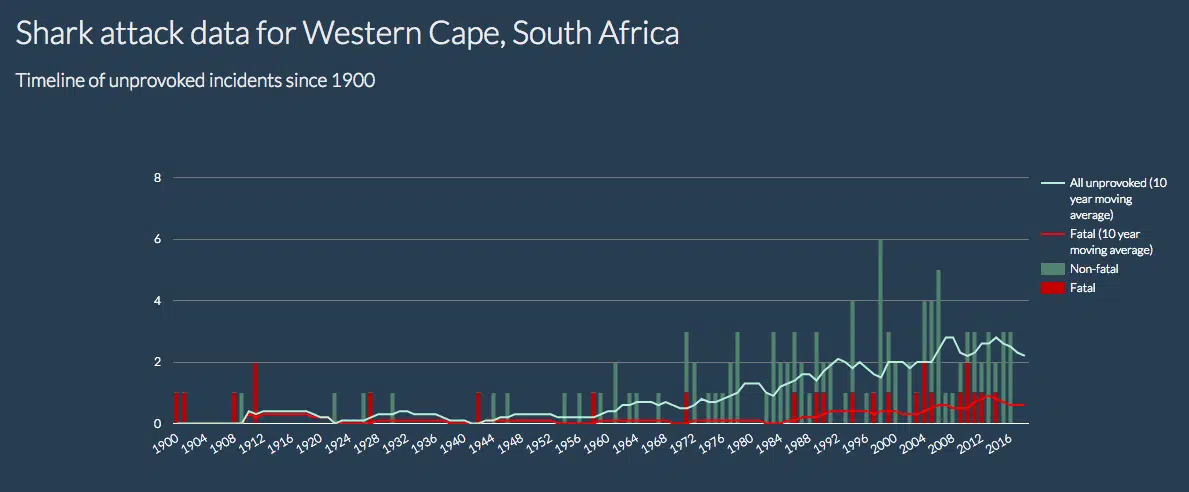The incisive E and F John Williams used to compose the entire theme tune for Jaws are still instantly recognizable. But the life of the Great White has changed quite a bit since Spielberg’s 1975 movie.
Back then, people paid to sit in cozy theatres with popcorn to watch sharks eat other people on screen. These days people pay to be voluntarily dunked in icy water to see sharks play with dummy seals all called Gladys.
That is, of course, weather and Killer Whales permitting.
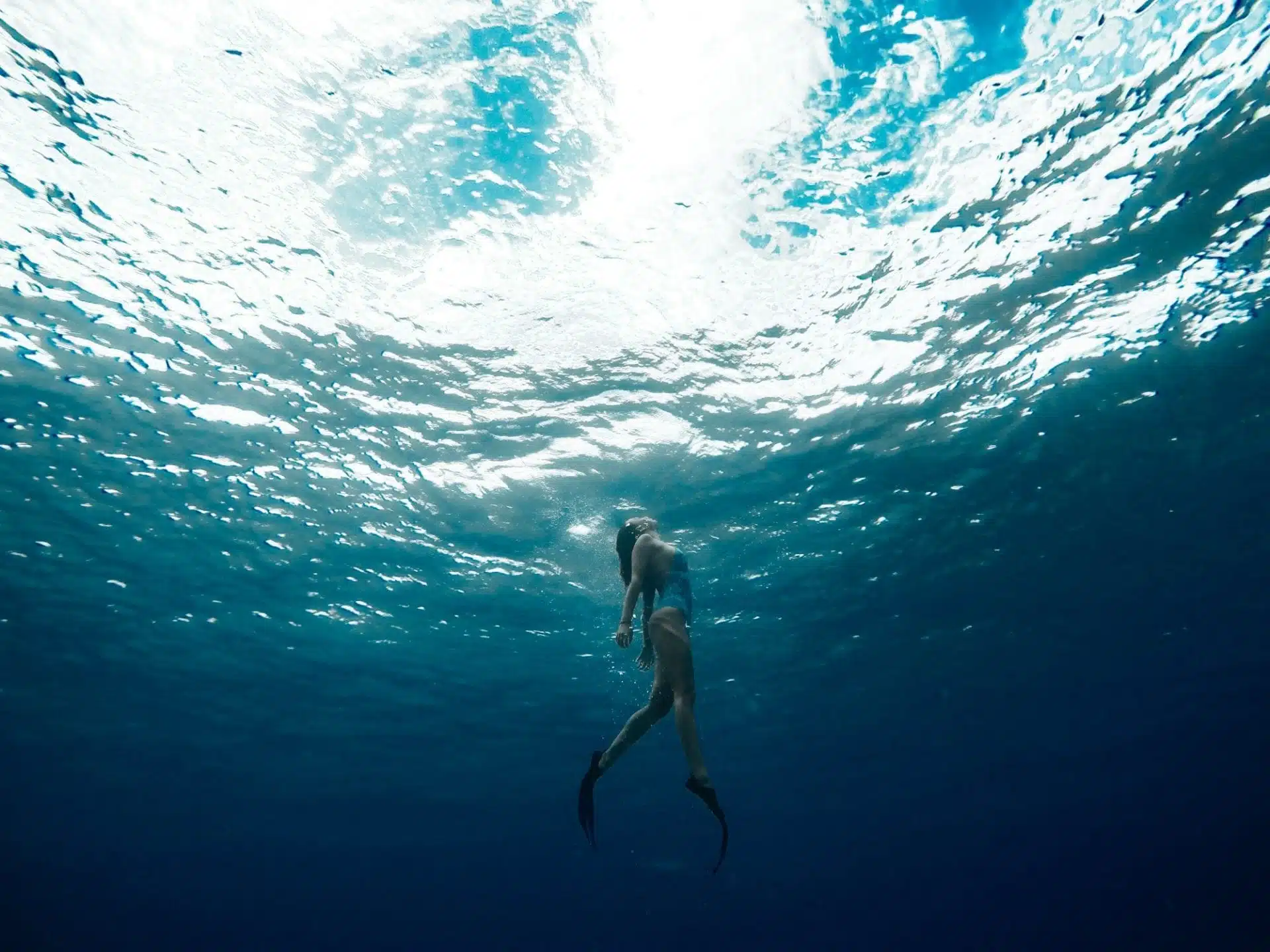 In May 2017 an Orca was spotted cruising around the waters off the coast of Gansbaai. A White Shark biologist at the Dyer Island Conservation Trust noted the incident, as it was very rare indeed. Killer Whales had not been seen in the area at all before 2011.
In May 2017 an Orca was spotted cruising around the waters off the coast of Gansbaai. A White Shark biologist at the Dyer Island Conservation Trust noted the incident, as it was very rare indeed. Killer Whales had not been seen in the area at all before 2011.
Then, like the perfectly designed chapters of an Agatha Christy whodunit, a dog walker found a great white shark on the beach. The apex predator appeared entirely intact, but on closer inspection its liver had been removed with what was eerily reported as ‘surgical precision’.
Soon after this, all the Great Whites disappeared from the area for weeks.
And throughout 2017 this scenario would be repeated. Four times at last count. As we write two Orcas have been resident long enough to gain nicknames (Port and Starboard for their slanting dorsal fins) and it is commonly accepted that what is happening is the third incident worldwide of orcas learning to prey on Great Whites.
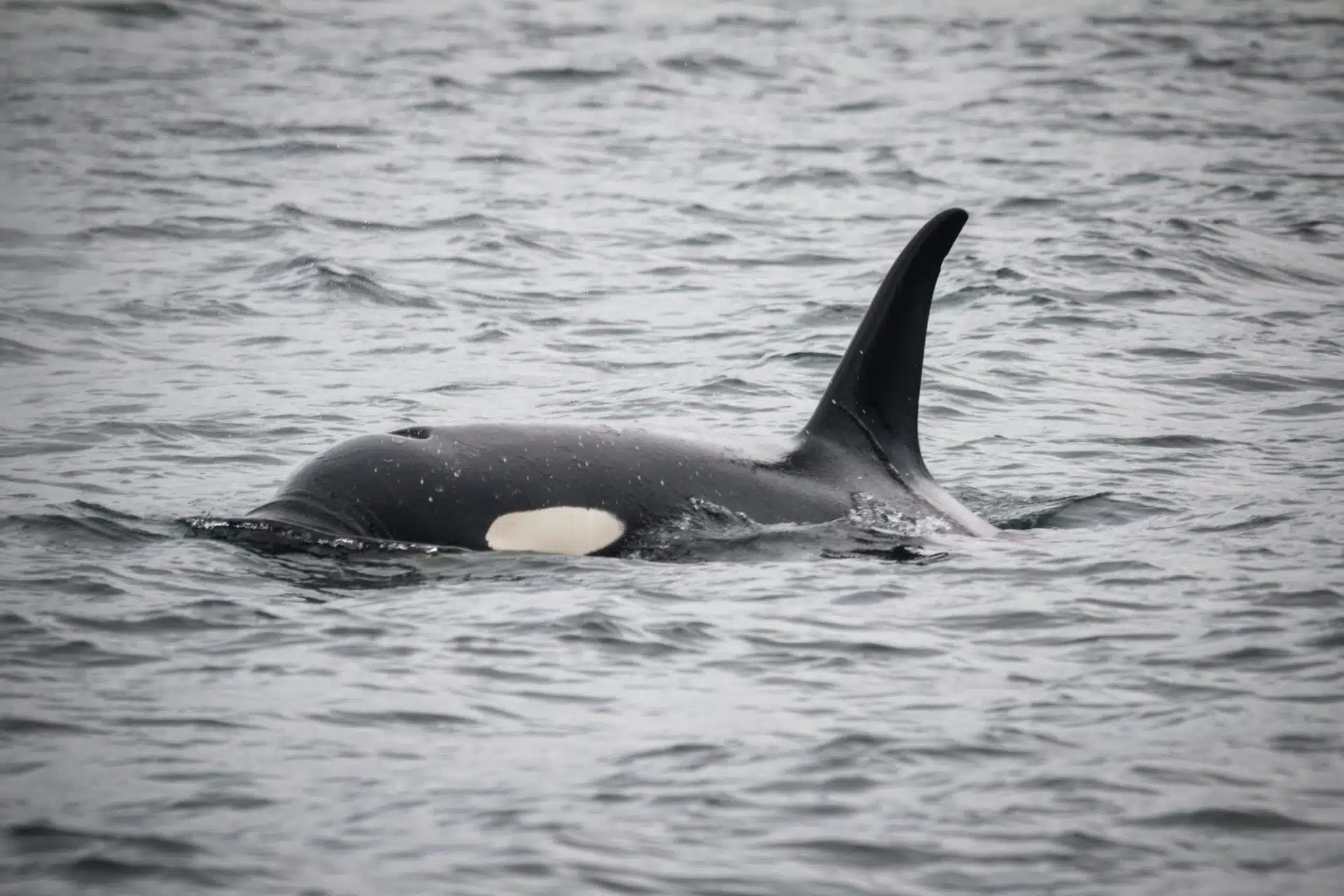
Killer Whales are one up on the Great White. They are longer and almost twice as heavy and they hunt in packs. But at the end of the day their best tool is cunning.
This is what they do.
They stun the Great White and flip it over. Then, they use the shark’s tonic immobility to push it through the water and drown it. Before removing the biggest organ, deliciously filled with squalene and either dining on it… or simply toying with it.
It has all brought an even bigger light to bear on the community of Gansbaai and the shark diving that happens there.
The Western Cape is one of only three locations in the world where you can safely cage dive with Great White Sharks.
(You can also participate in this activity in Australia and Guadalupe Island, Baja Mexico) The arguments for and the arguments against cave diving with the Great White dwarfed for a moment, next to THIS realization:
Forty years after Jaws first opened in cinemas it is quite extraordinary how little we still know about this incredible bellwether species.
Gansbaai is considered some of the most shark-infested water in the world. With cage diving, the tables are truly turned on the traditional humans-viewing-animals scenario. Here, humans are the ones in the cage and the apex predator remains free. The operation has an award-winning conservation track record and manages diving and whale-watching tours, as well as shark studies and a penguin sanctuary.
A rectangular cage made of galvanized steel mesh floats right next to the boat and after you change into a wetsuit they lower you down into it. A highly skilled dive master and Level Three Medic supervises all the dives. Everyone waits.
The sharks are never fed. They are chummed (no shark products are allowed in the chum)
But they ignore the chum. Because they are not here for the food. They are also not there for the humans.
To help pass the time one of the skippers tells an entertaining tale of a videographer accidentally falling into the water and scaring all the sharks away for three days.
The great whites have come only for entertainment.
Like a dog with a ball, they are under no illusion. But it is still fun and the younger the shark the more fun to be had.
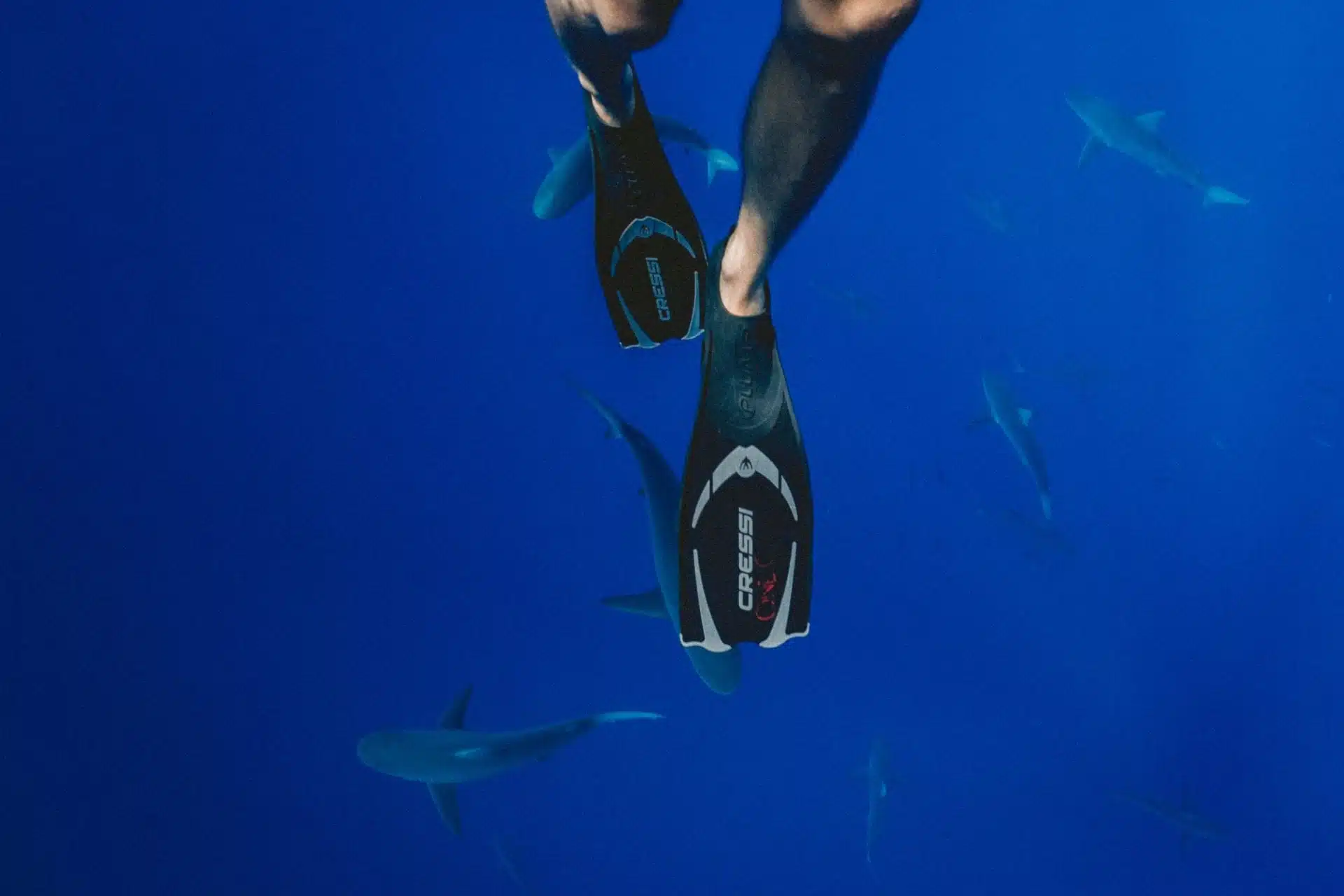
Nobody knows how big the South African population is, although estimates range from 500 to over 1200.
Everyone understands that the species is under enormous pressure due to culling through shark nets and drum lines. They are also accidentally caught in gill nets and longlines and they are losing prey due to overfishing.
There are two genetic lineages. One is local and the other is related to Australia and New Zealand which motivated governments to support extra protection for the species by listing them on CITES.
As they are a bellwether species, sharks determine the entire ocean ecosystem and how it functions.
Recently the results of a nine-year study (2004 – 2012) on Great Whites off another part of the coast of the Cape province in South Africa was published. Even after almost a decade and 557 hours at sea it seems to say more about what they don’t know than about what they do.
The study, which took place around Seal Island, near False Bay, noticed that the area was used mostly be juveniles and confirmed that mature sharks must use different habitats for feeding and reproducing
Only – you guessed it: no-one knows where that might be.
And you cannot protect what you do not know.
There has been a rise in both White Shark and Orca populations thanks to proper fishery management and endangered species status given to the White Shark’s primary food items. Better shark management has led to rising populations. This might explain why they are meeting more regularly.. or regularly enough for us to catch them meeting. But still:
The gaps in Great White Shark ecology remain incredible
ROTHSCHILD SAFARIS ARE EXTREME ABOUT ETHICS—SO, WHY DO WE BOOK CAGE DIVING?
These are the two main concerns:
-
Cage diving alters the shark’s natural behaviour
-
It can encourage interaction with humans and increase attacks on swimmers and surfers.
As far as altering natural behaviour goes, most opponents of shark cave diving are against chumming. Of course, chumming has been used by fishermen for a very long time and the seal colonies also give off a natural chum slick.
Marine biologists concede that even small differences in shark behaviour can have a deleterious effect on surfers. But since 2007 when they started studying and tracking sharks in the Gansbaai area they have noticed that a common trend seems to be for more experienced sharks to become bored with the cage diving boats and not to return, focusing on natural prey sources like the Cape fur seals and seasonally abundant fish species instead. The younger and less mature sharks like to play with the fake seal. The sharks also do not live in the bay permanently but only spend a couple of weeks or a few months out of a year there. Then they move inshore and patrol sandy beaches whilst they migrate – and will do this regardless of what happens next to the diving boat.
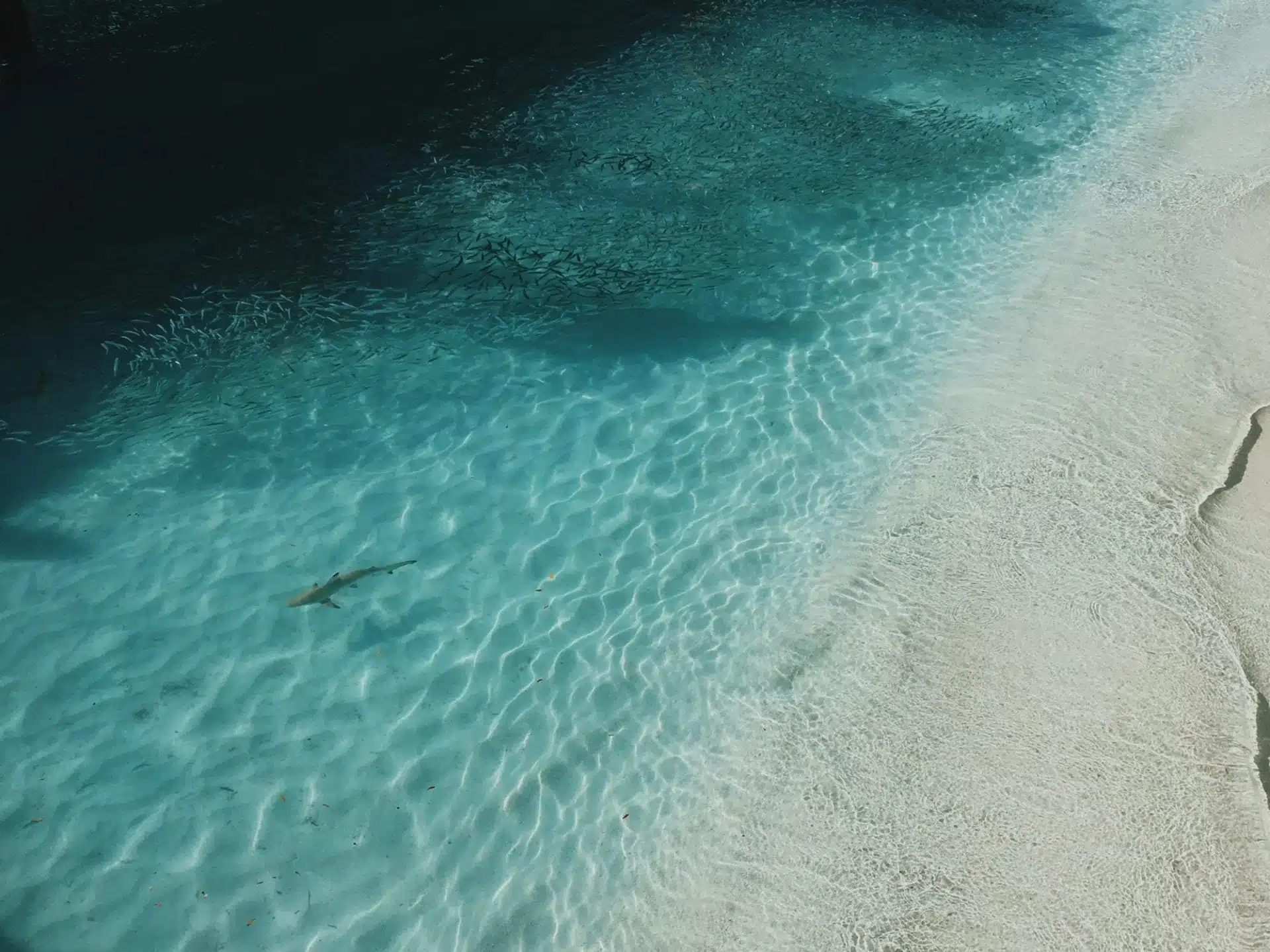
Finally, you have to look at the statistics.
If we agree that the Western Cape is one of the three most active areas in the world for Great Whites.
And also, a very active area for cage diving with three cage diving sites in the Western Cape (Mossel Bay, Gansbaai and False Bay).
With boats going out daily since 1998, weather permitting.
Then, bearing all that in mind, we look at shark attacks in the Western Cape:
and then finally we take into account shark attacks plotted against the increase in global activity in the water:
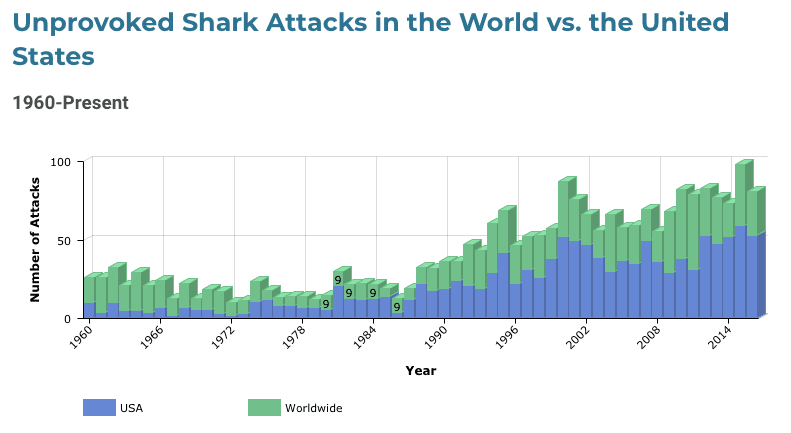 It becomes impossible to support an increased White Sharks aggression towards human beach users after experiencing a baited environment.
It becomes impossible to support an increased White Sharks aggression towards human beach users after experiencing a baited environment.
We find that we have come full circle. Back to the man who first got into a cage to dive with sharks. Someone you might recognize: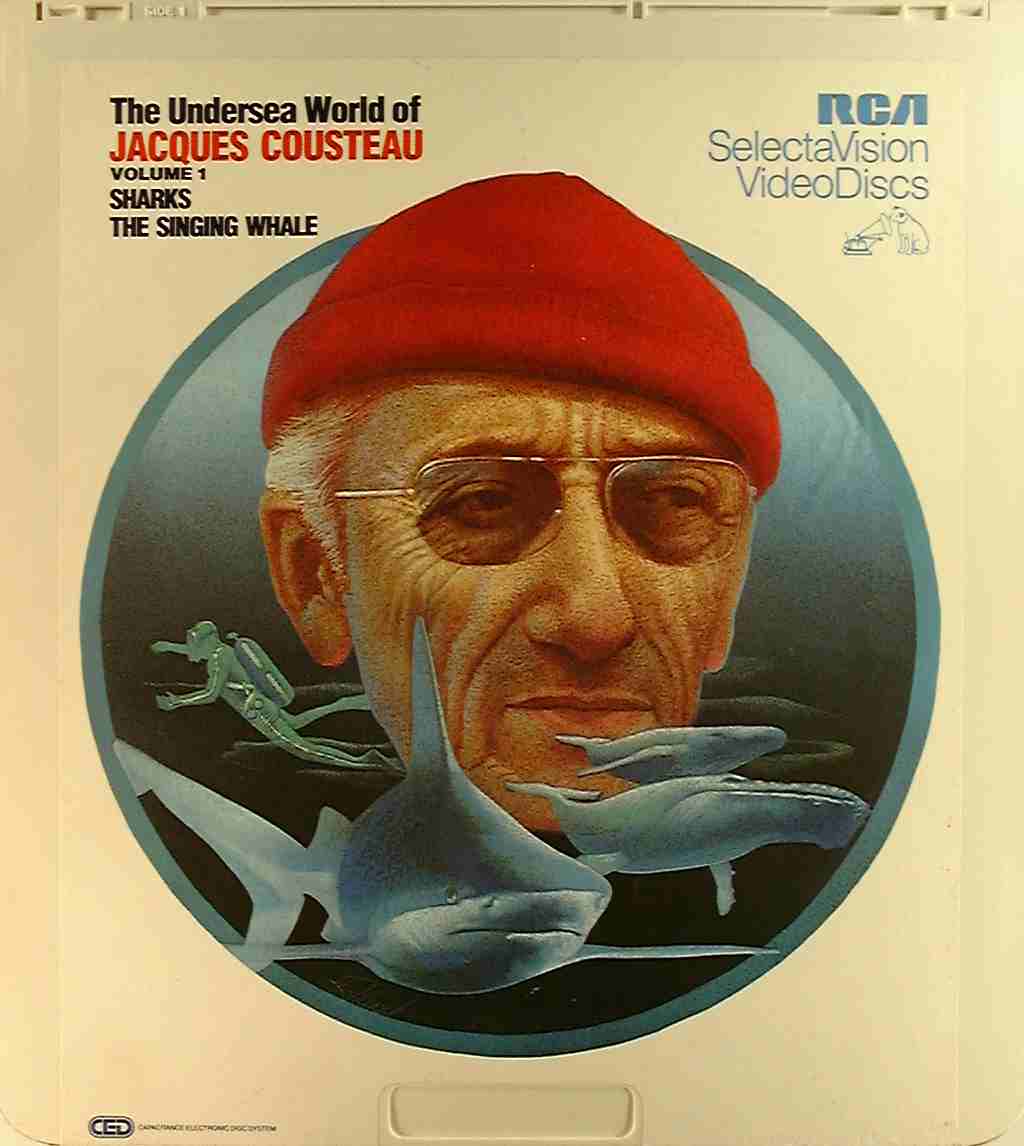
And agree with cage diving because as he said:
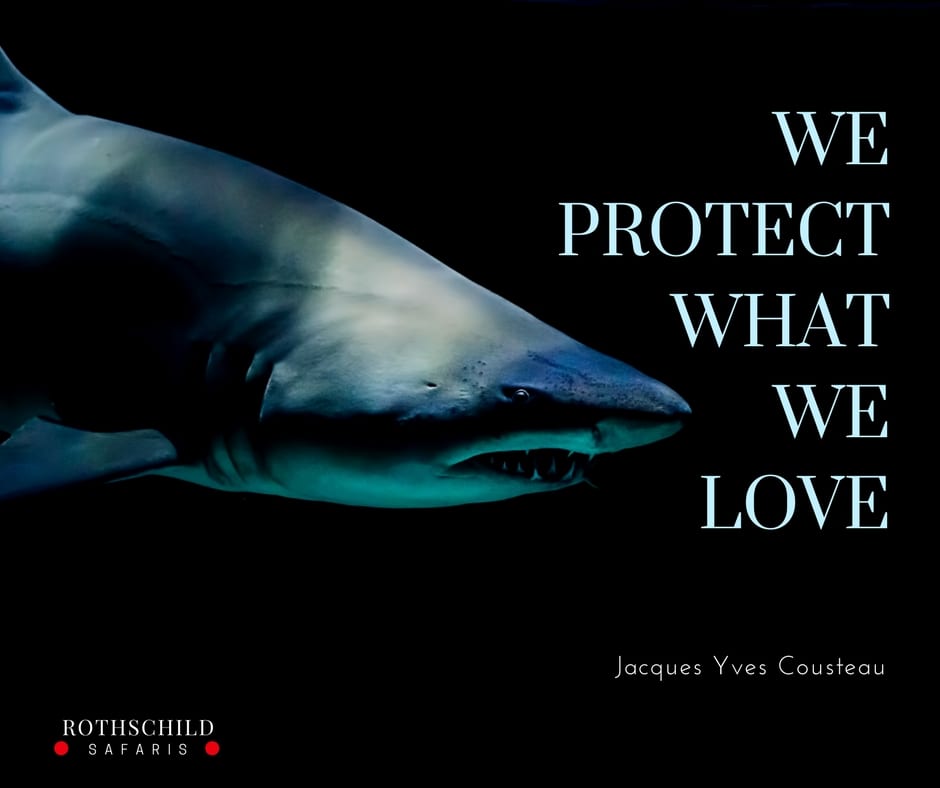
PS: Cage diving tips
-
Don’t forget a complete set of warm clothing to change into after your dive, a swimsuit, cap, sunblock and any filming equipment you might want.
-
A Continental breakfast is served before departure as fatty food might encourage motion sickness.
-
If you think you might suffer from motion sickness it is a good idea to err on the side of caution and consult a chemist before you leave. Most people who don’t get seasick report having taken medication early. (Do prepare for people who think they won’t get sick getting sick repeatedly during the trip.)
-
Around two and a half hours drive from Cape Town, the actual shark trips are always weather dependent. Diving trip can take anything from 3 to 5 hours depending on shark activity. Time in the water is dependent on the sharks moods and realistically an entire day should be set aside if you are cage diving from Cape Town.

